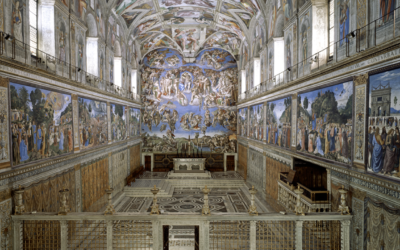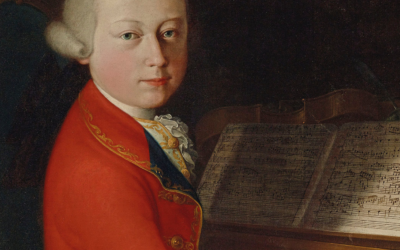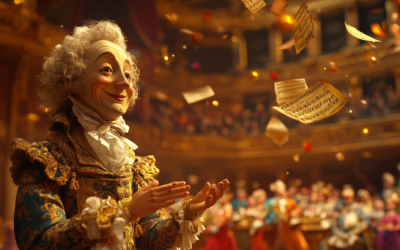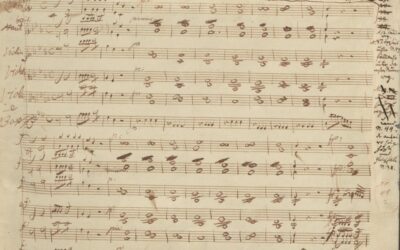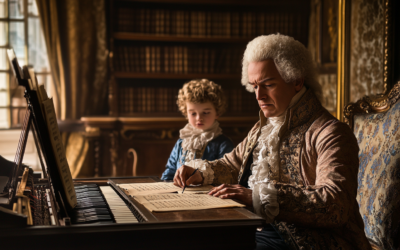Unmasking the Myth
The Cibavit eos and Mozart's Deceptive Legacy
In the realm of classical music, Wolfgang Amadeus Mozart is often portrayed as an unparalleled genius. However, a closer examination of his early works reveals a very different narrative, one in which mastery may be more illusion than reality. A striking example is the motet Cibavit eos in adipe (K. 44), which has been erroneously and romantically attributed to Mozart in various biographies.
Mozart: The Fall of the Gods
This book offers a fresh and critical look at the life of Wolfgang Amadeus Mozart, challenging the myths that have surrounded him for centuries. We strip away the romanticised image of the “natural genius” and delve into the contradictions within Mozart’s extensive biographies. Backed by nearly 2,000 meticulously sourced citations, this work invites readers to explore a deeper, more complex understanding of Mozart. Perfect for those who wish to question the traditional narrative, this biography is a must-read for serious music lovers and historians.
"They have painted a misleading portrait of a composer, as if he were profoundly skilled in counterpoint and polyphony at just fourteen years old, which is absolutely untrue."
Mozart: The Fall of the Gods
At the tender age of fourteen, Mozart faced a composition exam at the prestigious Accademia Filarmonica in Bologna—a moment that should have marked a significant turning point in his career. The exam, however, was a disaster, but he was passed nonetheless, as if the whole charade was designed to bolster a burgeoning myth.
Musicologist Hermann Abert suggested that Mozart had prepared for this farcical examination under the guidance of Giovanni Battista Martini. The reality, however, appears far less impressive. Abert claimed that Mozart had composed Cibavit eos, a supposed masterpiece that demonstrated his ability to compose in the ancient style.
The Illusion of Originality
Abert and other scholars, blinded by their own biases, asserted that Mozart approached the exam with serious preparation, producing the Cibavit, which, according to these scholars, showcased his emerging talent, impressing none other than Father Martini himself. However, a more rigorous investigation reveals that Cibavit was not an original work but a mere copy, beautifully transcribed. It unmistakably echoes the style of late Renaissance composers, a fact that becomes glaringly obvious even to the casual listener.
A Shattered Illusion
Recent discoveries have unveiled that K. 44 is a copy of an earlier work by Johann Stadlmayr rather than an original composition by Mozart. This revelation serves as a powerful testament to the precarious nature of the alleged genius of Mozart. The admiration he has received is built on a foundation of misconceptions and inaccuracies, such as the case of Cibavit, perpetuated by an uncritical acceptance of earlier biographical accounts.
The Mozart establishment and its so-called experts have confused early Renaissance music with Mozart’s compositions, revealing their ignorance of both. They have painted a misleading portrait of a composer who, at the age of fourteen, supposedly mastered counterpoint and polyphony. In reality, this is far from the truth.
Conclusion
The narrative surrounding Cibavit eos challenges us to rethink the stories we have been told and to question the foundations of the mythic genius that surrounds Mozart. This motet does not demonstrate the brilliance of Wolfgang Amadeus Mozart; instead, it exposes the superficiality of Mozart studies, highlighting how easily myths can be constructed and perpetuated in the world of classical music.
You May Also Like
The Legend of Mozart’s Miserere
The enduring popularity of the narrative surrounding Mozart’s Miserere highlights the allure of the prodigy myth, but as we peel back the layers, we uncover a more nuanced picture of his life and the musical landscape of the time. The reality often contrasts sharply with the romanticized tales that have shaped our understanding of his genius.
Rediscovering Musical Roots: The World Premiere of Gasparini and Mysliveček
This December, history will come alive as the Camerata Rousseau unveils forgotten treasures by Quirino Gasparini and Josef Mysliveček. These premieres not only celebrate their artistry but also reveal the untold influence of Gasparini on Mozart’s Mitridate re di Ponto. A pivotal event for anyone passionate about rediscovering music history.
The Curious Case of Mozart’s Phantom Sonata
In a striking case of artistic misattribution, the Musikwissenschaft has rediscovered Mozart through a portrait, attributing a dubious composition to him based solely on a score’s presence. One has to wonder: is this music really Mozart’s, or just a figment of our collective imagination?
The Illusion of Canonic Mastery
This post explores the simplistic nature of Mozart’s Kyrie K.89, revealing the truth behind his early canonic compositions and their implications on his perceived genius.
The Unveiling of Symphony K.16
The Symphony No. 1 in E-flat major, K.16, attributed to young Wolfgang Mozart, reveals the complex truth behind his early compositions. Far from the prodigious work of an eight-year-old, it is instead a product of substantial parental intervention and musical simplification.
K.143: A Recitative and Aria in the Shadows of Doubt
K.143 is a prime example of how Mozart scholarship has turned uncertainty into myth. With no definitive evidence of authorship, date, or purpose, this uninspired recitative and aria in G major likely originated elsewhere. Is it time to admit this is not Mozart’s work at all?


